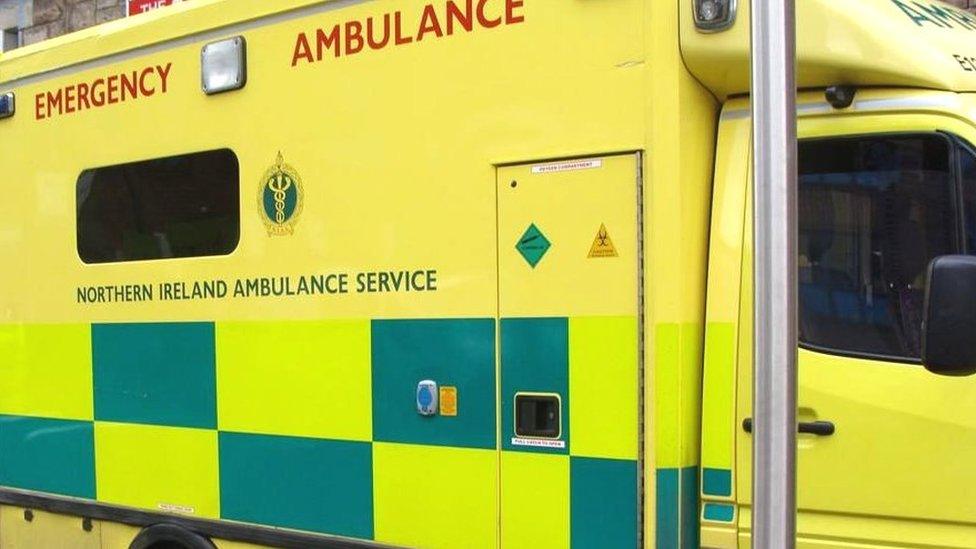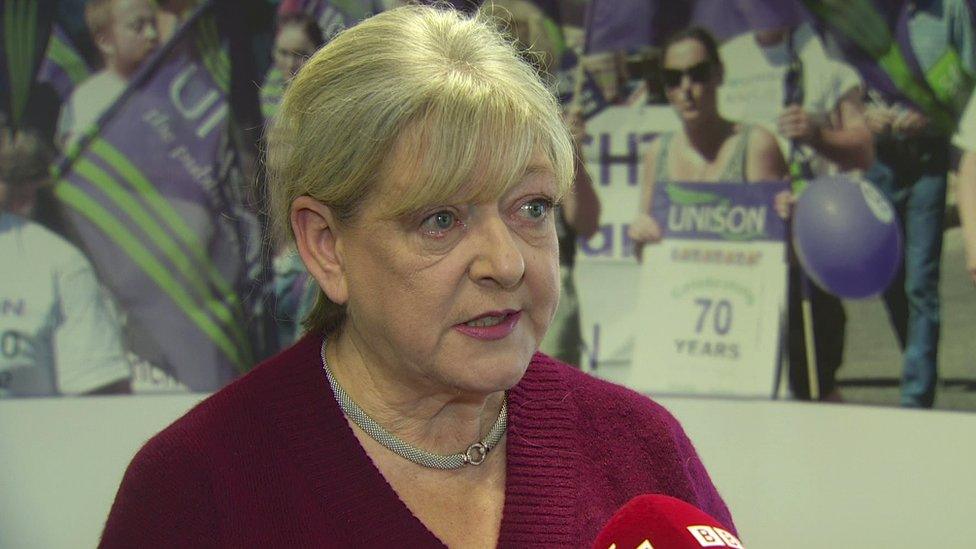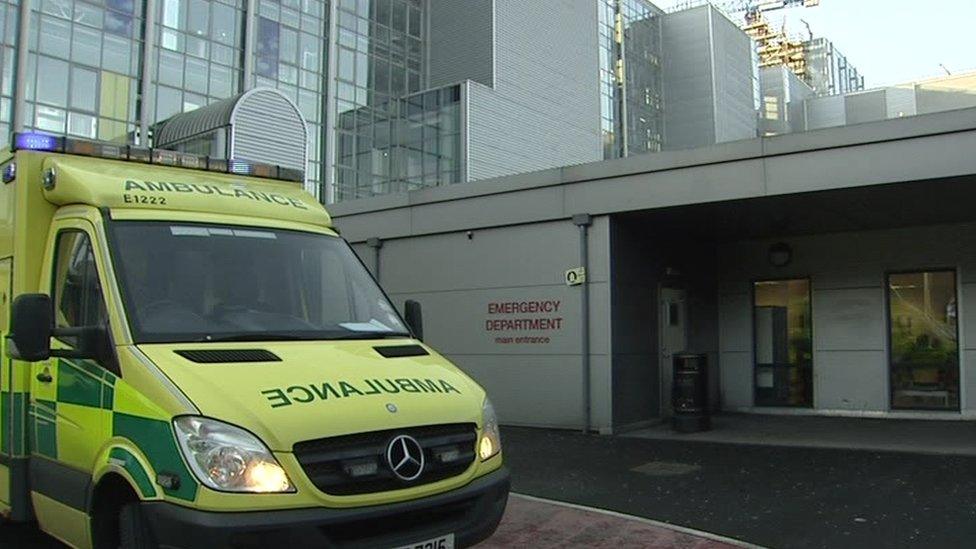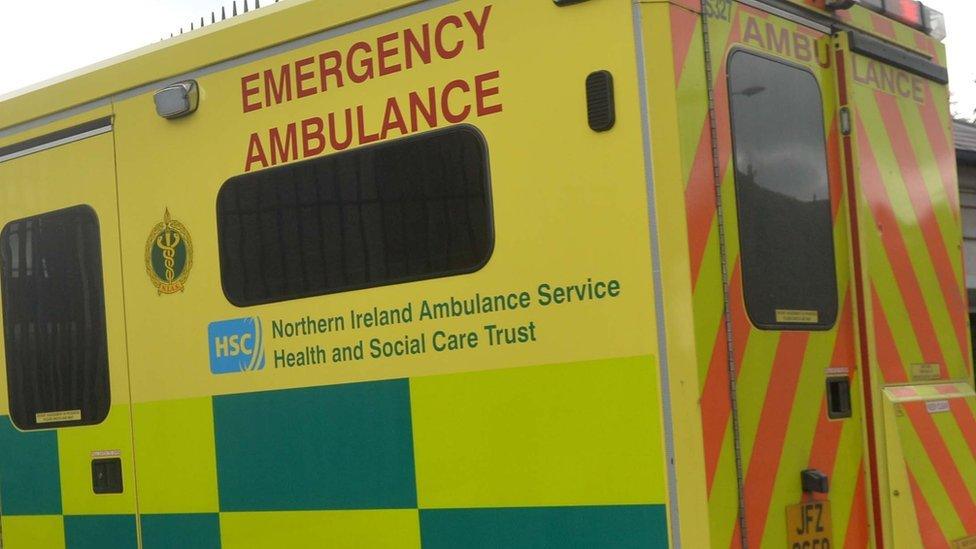Private ambulances in Northern Ireland cost £3.2m last year
- Published

A review into NIAS resources found more than 300 extra staff are needed
The Northern Ireland Ambulance Service (NIAS) spent £3.2m on private ambulances in 2018/19, figures have revealed.
The ambulances - run by private firms and voluntary organisations - were sent to 8,514 calls made to 999.
NIAS said private ambulances were needed to meet demand on services.
Health union Unison said increasing private ambulance use was concerning and was indicative of problems across the health service.
An ambulance service spokesman said: "NIAS has contracts in place with a number of independent ambulance providers to support our day-to-day activities at times when, as a result of increased demand on our service, our ability to respond to calls is challenged."
They are used for routine and pre-planned calls, he said, but can be deployed to "low-level emergencies" if NIAS assesses it is safe to do so.
Contractors include the Red Cross, St. John Ambulance and the Order of Malta.
NIAS says deploying independent ambulances "enables us to protect our paramedic and EMT response for those calls which are either immediately life threatening or urgent in nature."
The NIAS spokesman said: "Patients in need of our service can be assured that NIAS will provide the most appropriate response to meet their clinical need."
Late last year, a review into current NIAS resources identified the service "required in excess of 300 additional staff," he added.
"The trust is currently developing a business case to be submitted to Department of Health for consideration," the spokesman said.

Patricia McKeown from Unison said the union was concerned about the use of private ambulances for some time.
Unison said the use of private firms was indicative of problems across Northern Ireland's health service.
"We have been raising serious concerns about the use and increase of private sector ambulances for some years," Patricia McKeown, Unison's regional secretary said.
She said the concerns "stem from under-investment in the health service as whole and poor workforce planning".
She added: "They are part of the same bad decision-making process that has led to the current staffing crisis and the overall unchecked expansion of spending on locums and agency staff across the system and has also contributed to the current industrial action."
'Considerable pressure'
The body which decides where much of the health budget is spent, said private ambulances were at present a much-needed resource.
"When NIAS is under considerable pressure, the use of private ambulances provide much-needed additional capacity," a spokesperson for the Health and Social Care Board (HSCB) said.
The spokesperson said while work is under way to expand NIAS ambulance workforce, "it is likely that some private capacity will continue to be required in the interim."
The HSCB spokesman said private firms were used to answer non emergency and "and occasionally in response to emergency calls which have been triaged as routine and non-life-threatening, which are the majority of 999 calls."
- Published9 August 2019

- Published12 July 2016
